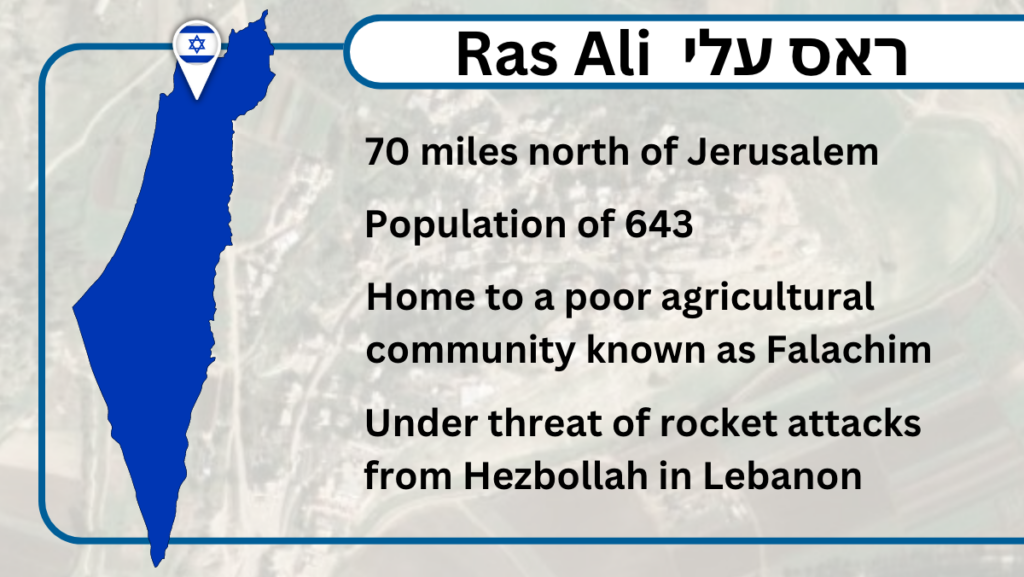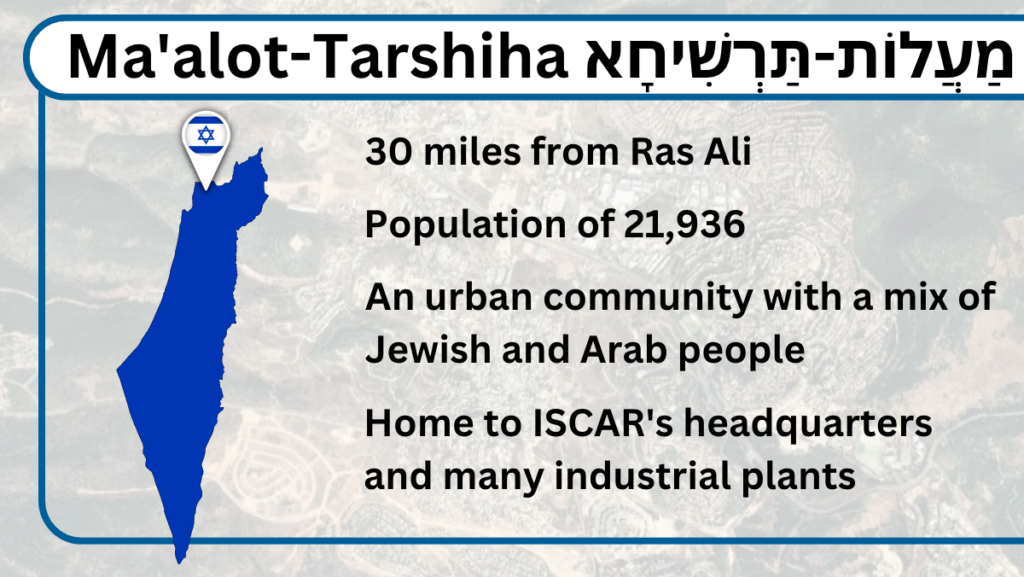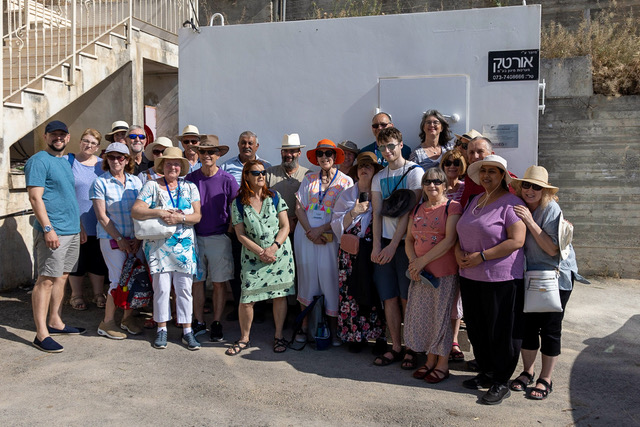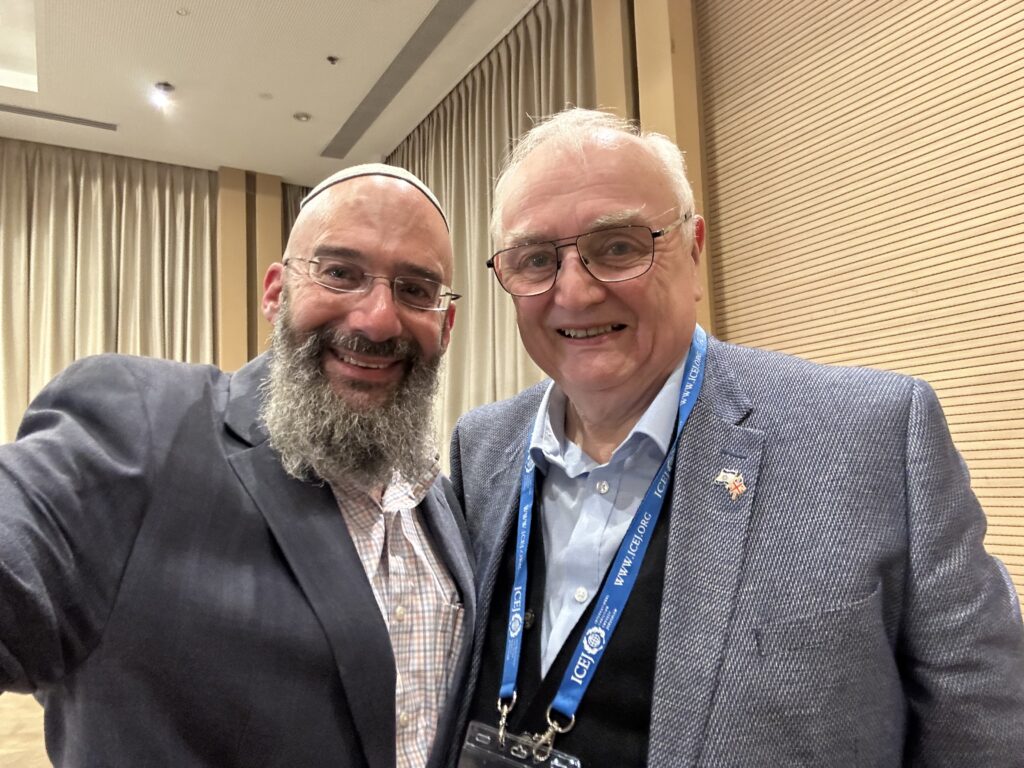
Your generosity has helped purchase bomb shelters in Israel
Date - 10.2.2023
Over the last two years, the ICEJ UK branch has purchased two new bomb shelters for communities in Israel that are vulnerable to rocket fire.
Bomb shelters have become an essential part of life for those living on the northern border of Israel. The Druze, Arab and Jewish communities here are desperately seeking funds to improve their protection from missiles coming from from Hezbollah in Lebanon..
Ras Ali
The first of the two shelters was delivered to a small agricultural village just east of Haifa.
Ras Ali is a poor farming community just seventy miles north of Jerusalem. It is home to a group of Bedouin people called “Falachim” which means they work in agriculture. The Bedouins here are low down in the tribe hierarchy, meaning they are considered less valuable by those above.
The Bedouin people have made themselves and essential asset to Israel and the IDF. Living on the northern border, most of the IDF trackers are Bedouins. They spend their days guarding the front line from infiltrators and investigating break-ins. Their dedication has prevented an innumerable amount of terrorist attacks over the years.
Up until a few years ago, the people here did not have any shelter from rocket attacks. The ICEJ UK knew something had to be done to help. With the help of extremely generous people in the UK, we were able to install a much-needed shelter in this community.

Ma’alot-Tarshiha
Our second bomb shelter was placed in the urban city of Ma’alot-Tarshiha.
With a population of over twenty thousand people, Ma’alot-Tarshiha is home to a mix of Jewish and Arab people.
The unemployment rate here is lower than the national average. This is thanks to the local industrial parks being a major source of income and manufacturing. Just south of the city is the headquarters of ISCAR, the world leader in metal removal technology for the automotive and aerospace industries.
For many people here, the horrendous Ma’alot terrorist attack will forever haunt their memories. In May 1974, a group of terrorists from the Democratic Front for the Liberation of Palestine took over a hundred children as hostages at a local school. The terrorists demanded the release of twenty three Palestinian militants from Israeli prisons, or else they would kill the students.

On day two of the hostage situation, Sayeret Matkal stormed the school in an attempt to rescue the hostages. In retaliation, the terrorists killed twenty five people and injured sixty eight.
The ICEJ UK was able to raise the money for a new bomb shelter in this area. The shelter, which you can see below, was placed near a school. Now the local children have a safe place to run in the event of an attack.

Where did the money come from and how do we do it?
Delivering bomb shelters to at risk areas has been a staple of the embassy since 2007, and the UK branch plays a major role in this. The money for these refuges and everything else we do here at the ICEJ UK would not be possible if it wasn’t for the incredible generosity of our supporters throughout the United Kingdom.
We have partnered with Operation Lifeshield to help bring these much needed shelters to vulnerable towns across Israel.
They are strong, steel-reinforced, pre-cast concrete fortified shelters or all-steel shelters in public areas, such as schools, kindergartens, parks and senior citizen centres. The shelters are above-ground, fully-accessible structures, and meet the strictest standards of the IDF Home Front Command. Lifeshield shelters are transported by truck, and can be re-located to meet changing security needs.
Operation Lifeshield

Get involved
Want to get involved? Make a start by signing up to our newsletter using the form below. We will keep you up-to-date with all the embassy’s news and events taking place throughout the UK.